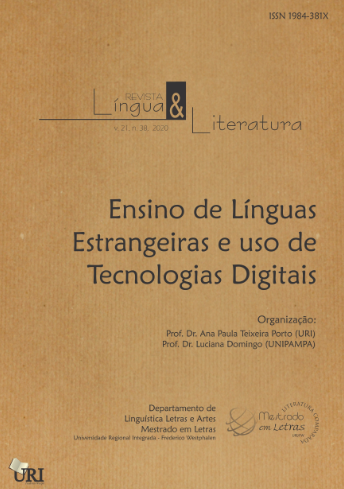EFFECTIVE WAYS OF TEACHING PRAGMATICS: HUMOR IN THE CLASSROOM
Palabras clave:
Pragmatics. English Teaching. Humor. Systemic-Functional LinguisticsResumen
The objective of this paper is the consideration that in teaching L2 pragmatics the socio-culturally and contextually appropriate (or inappropriate) communication will depend on the teaching of L2 pragmatics in the classroom in certain instances, as there can be many pragmatically appropriate ways to ask for information, to schedule an appointment, etc. The corpus is based on utterances and situations found in teaching English as L2 environment. Our particular context is one of a regular English class in a private English school in the state of São Paulo (Brazil) in which the excerpt of the movie “Philomena” and comic cartoons to teach English were used. Some results showed that the great majority of the investigated students could not make out the humorous scenes of the video and cartoons before the scenes/cartoons were culturally depicted to them mainly due to pragmatic issues.Descargas
Publicado
2020-05-25
Cómo citar
De Oliveira, U., Ikeda, S., & Saparas, M. (2020). EFFECTIVE WAYS OF TEACHING PRAGMATICS: HUMOR IN THE CLASSROOM. Revista Língua&Literatura, 21(38), 118–134. Recuperado a partir de https://revistas.fw.uri.br/revistalinguaeliteratura/article/view/3453
Número
Sección
Artigos
Licencia

A Revista Língua & Literatura foi licenciada com uma Licença CreativeCommons - Atribuição Não Comercial – Sem derivados 3.0 Não Adaptada.
Língua & Literatura não passa a deter os créditos sobre ensaios publicados. Em caso de republicação, solicita-se apenas referendar o ano e volume de nossa revista onde ocorreu a publicação inicial.

